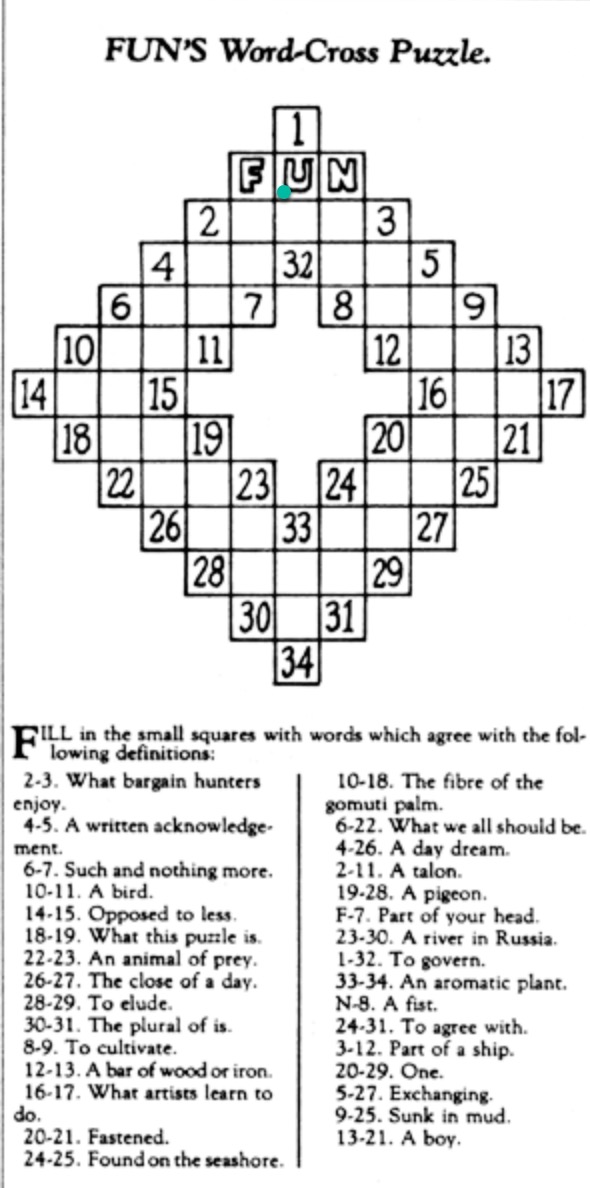It is generally agreed that the first crossword was composed by Arthur Wynne and appeared in The New York World on 21st December 1913. Wynn's pioneering word cross as I think he called it is below.

You can see it still had a way to go before it evolved into its modern form. If you decide to have a go and get stuck there are some leads here.
In the more than a hundred years that have passed, crosswords have found their way into most of the world's newspapers, or so I imagine. This set me wondering about what the word for crossword is in other languages. The only one I knew was Greek stavrolexo, which is a literal translation, the stravo bit means cross (as in the name Stavros) and the lexo bit mean word (think lexicon).
This way of exporting a word to another language is called a calque. The alternative is for the target language to adopt the original as a loanword. English has thousands of loanwords, think of bistro, delicatessen, opera, wok, tomahawk, safari, sushi, taco, kiwi, bungalow, budgerigar (not forgetting calque.)
I tried a few sample European languages to see whether crossword because a calque or a loanword and fond a mix. The main reason I stuck to European languages is that outside that group it's harder for me to decide if something is a calque. Lots of languages seem to just use the loanword but there could be ones that have a completely independent word for the concept, I can't really tell.
Here are the calquesI I found, apart from the Greek
German Kreuttzworträtsel (I think rätsel is puzzle)
French mots croissés
Spanish crucigramma
Welsh croesair
Here are languages that use crossword as a loan
Yiddish crossvert
Russian Krossoword Кроссворд
Georgian h'rosvordi კროსვორდი
Comments
New comment
A couple more calques:
Dutch kruiswoord
Irish crosfhocal
Another interesting factoid: the English word calque is a loanword (from French) and the word loanword is a calque (from German Lehnwort).
New comment
<<The English word calque is a loanword (from French) and the word loanword is a calque (from German Lehnwort).>>
How neat is that, thanks Steven!